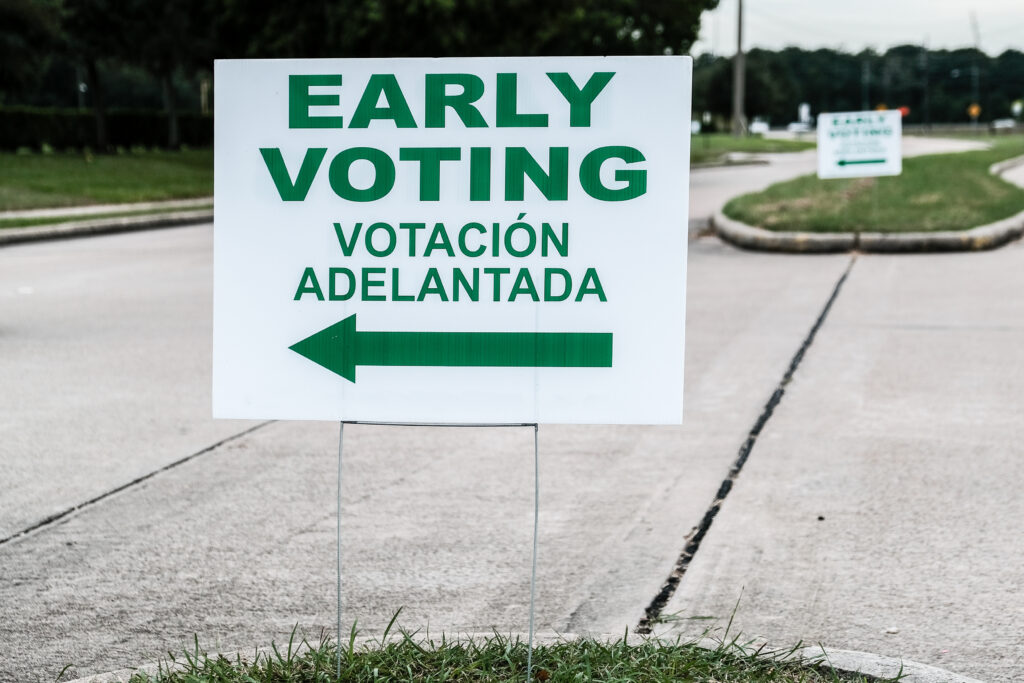Delaware To Reinstate Early and Absentee Pro-Voting Laws After State Supreme Court Decision

Just in time for the 2024 election cycle, Delaware’s early voting and absentee voting laws will go back into effect after the state high court rejected a right-wing challenge to the laws.
The unanimous ruling issued Friday will allow for early voting ahead of Election Day and will allow some residents to be permanent absentee voters.
The decision reverses a February opinion from the lower court which struck down the laws as a result of a right-wing lawsuit originally filed in 2022 by then-Delaware Republican Party Chair Jane Brady and the right-wing Public Interest Legal Foundation (PILF).
After finding that PILF and Brady did not have the legal right to sue over the law because they did not prove there was “imminent or particularized harm,” the state high court tossed the challenge.
The court also rejected the right-wing plaintiffs’ claims that their votes were “diluted” by “illegally cast ballots.” Writing that vote dilution claims are traditionally brought in Voting Rights Act cases or gerrymandering cases to challenge the unfair voting strength given to a particular group at the expense of another, the court concluded that the right-wing plaintiffs did not explain how such a claim would be applicable to their case.
All five justices were appointed by a Democratic governor and two recently joined the court in May 2023. Today’s decision marks a shift in the court’s voting jurisprudence as the court previously invalidated the state’s same-day registration law and no-excuse mail-in voting law as a result of a separate lawsuit filed by PILF on behalf of a Republican candidate for the Delaware House of Representatives.
Original post, Feb. 26
The Delaware Superior Court last Friday granted a request from Republican State Sen. Gerald Hocker and an elections inspector seeking to strike down a duo of pro-voting laws pertaining to early voting and absentee voting.
Last week’s decision stems from a state-level lawsuit originally filed in 2022 by then-Delaware Republican Party Chair Jane Brady and the right-wing Public Interest Legal Foundation (PILF). The lawsuit alleged that the challenged election laws violate the Delaware Constitution.
One of the now-blocked laws, which was enacted by the state’s Democratic-controlled General Assembly in 2019, allowed for at least 10 days of early in-person voting prior to Election Day beginning in 2022. The other challenged law, enacted in 2010, permitted certain eligible voters to apply for “permanent absentee status” under which they would automatically receive an absentee ballot without having to reapply for one every election cycle.
“The enactments of the General Assembly challenged today are inconsistent with our Constitution and therefore cannot stand,” Friday’s opinion stated.
According to Judge Mark Connor, who was appointed to the Delaware Superior Court by the state’s Democratic governor in 2020, the early voting statute contravenes the state constitution’s designation of a singular date on which Election Day must be held.
As for the state’s permanent absentee voting law, Connor held that the state constitution only allows voters to cast an absentee ballot at a particular general election for a constitutionally enumerated reason: “By granting indefinite absentee voting to those who are unable to vote in a single election, Delaware’s Permanent Absentee Voting Statute impermissibly extends beyond the limited authority granted to the General Assembly by our Constitution.”
Friday’s decision is not the first time that right-wing litigants have prevailed in striking down pro-voting laws in Delaware. Ahead of the 2022 midterm elections, the Delaware Supreme Court invalidated the state’s same-day registration law and no-excuse mail-in voting law as a result of a separate lawsuit filed by PILF on behalf of a Republican candidate for the Delaware House of Representatives.
In a statement responding to Friday’s ruling, U.S. Rep. Lisa Blunt Rochester (D-Del.) noted that the Superior Court’s decision “is another reminder of where we are at this moment — no matter where you live in our country, Republican extremists will stop at nothing to attack our access to the ballot box.” Rochester also emphasized that the ruling serves as an “urgent reminder that we need federal voting rights protections.”
The defendants — Delaware’s state election commissioner and the state department of elections — have not yet indicated whether they plan to appeal Friday’s ruling.